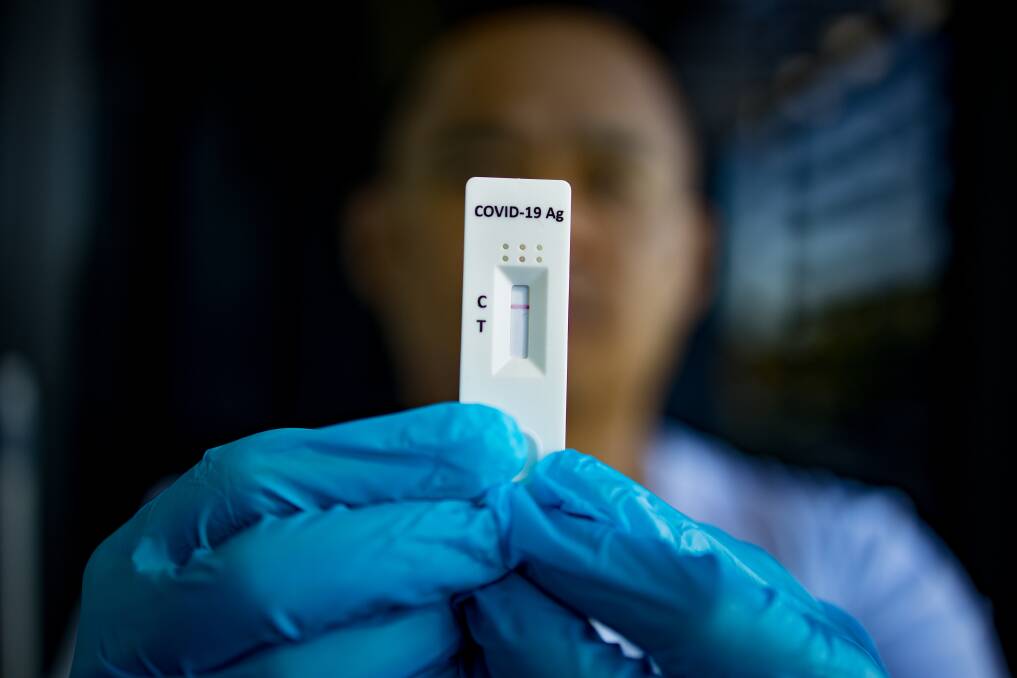
TEACHERS' unions have raised concerns about the state government's purported plan to have students take rapid antigen tests (RAT) at home twice a week, saying it puts extra pressure on families and lacks details about how results will be given to schools.
The Department of Education has been contacted for comment, after the Sydney Morning Herald reported on Tuesday that NSW and Victoria were working together on a back-to-school plan, based on surveillance testing, to present to national cabinet this week.
It said families would be given RAT kits to test each student twice a week before school. Those who tested positive would stay home, but their classmates could attend school without daily testing.
This is a departure from the test to stay approach, which allows close contacts to attend school only if they return negative RAT results.
Independent Education Union Australia NSW/ACT Branch acting secretary Pam Smith told the Newcastle Herald the government had not held any formal consultation with the union, which was open to discussions.
"The Premier often seems to make media announcements without any genuine consultation with the union or with staff in schools," Ms Smith said.
"Principals are telling the IEU they're hearing all these announcements without any indication of the practicality of what that will look like in schools... there are a whole range of practical issues I would imagine with parents doing the testing, the availability of the tests, then conveying that information to schools so that schools know which students will be or won't be there on a particular day.
"Some parents have greater resources, greater time than others and some parents will be able to do this quite readily, others for various reasons including their own work commitments may find this a bit more challenging, so what responsibilities will come back onto schools as a result of this?
"We would have a concern that this places an onus on parents, parents are already busy, they're busy with their family lives, many of them are very busy in their working lives and this appears to put a stress on parents... over time a certain degree of other priorities may emerge for parents which make it a bit more challenging."
Ms Smith said it was unclear what the mechanism would be for reporting results to schools.
"At one stage it was to go to an app," she said. "But how is that conveyed to the school so a teacher knows how many students will be there on a given day and what are the staffing implications for principals in staffing their schools?"
She said there needed to be more detail about the "implications" of positive tests for schools, as well as about measures including vaccination access and coverage, and ventilation.
NSW Teachers Federation regional organiser Jack Galvin Waight said the union was involved in a series of ongoing meetings with the state government.
"We are insisting on strengthening risk mitigation strategies before any school return," he said.
"This includes rapid antigen testing, which clearly has an important role to play as a line of defence.
"We support its use as surveillance, complemented by test to stay provisions."
Mr Galvin Waight said the government needed to use both strategies, as well as other risk mitigation strategies, for which there had been "little regard".
"For example masks, ventilation and other recommendations that are required to ensure that our schools are safe," he said.
"Hunter teachers are also concerned that crippling staff shortages could further impact schooling.
"The government couldn't staff schools before the latest wave of COVID, so how are they going to be able to do it now?
"The COVID-induced absentee rates will severely impact our school operations in the Hunter, exasperating crippling teacher shortages which the government has known about and done nothing about for years."
The Sydney MorningHerald reported the Association of Independent Schools of NSW told principals they could use non-teaching staff including parents to supervise students if staff are sick.
Ms Smith said this sounded "ad hoc, knee jerk, reactive" and proper planning was needed.
National cabinet decided last week that education and childcare sector workers who are close contacts can avoid isolation and return to work after providing a negative rapid antigen test.







